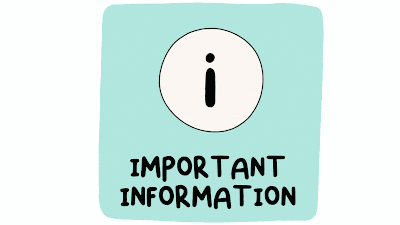
My school opened four years ago and has added a new year group every year, so we now have our first Year 11 cohort. This is a really important year for us – we’re likely to have our first Ofsted inspection, and we’re also going to have our first ever GCSE results next summer. I’m confident we’ll do well on both counts. Next month we’ll also be running our first ever Sixth Form Open Evening and setting up our A level structures and curricula, ready for the opening of our new Sixth Form next September. Starting A level provision from scratch is something none of us have done before, in fact only a few teachers in the school have experience of teaching A level, so this is a really exciting challenge.
I’m very lucky that I have a fantastic maths department (twelve excellent maths teachers and still growing). I’m hoping to advertise for a Key Stage 5 Coordinator to join my team next September (if you’re interested, get in touch!).
I’ve spent the last three years putting my heart and soul into building this school as a member of the senior leadership team, and I’ve made the decision that it’s the best place for my own daughter to attend from next September. I care deeply about ensuring that the school is highly successful, and a brilliant maths department is a vital component of that success.
There are a lot of Heads of Maths who have been doing the job for decades and are much better placed than me to give advice on ‘how to be a Head of Maths’. So I won’t do that. But I will share a few things I’ve done during my first seven weeks in the role, because for a long time now I’ve been a huge advocate of teachers sharing practice with other schools. I wrote a similar post ‘Some Things I’ve Tried’ exactly seven years ago today. When you read the ideas below, it may be that you already do all of this at your school, or perhaps you don’t want to do any of this. But even if just one school borrows one idea from this post then I think it’s worth me taking the time to share it.
1. Papers Society
So every Thursday after school, almost half of Year 11 come to the canteen to eat and chat and do maths papers together. Amazing. If they continue to come every week until June, they will have done at least thirty extra GCSE practice papers by the time they sit their final exams.
Moving Papers Society to the canteen had a few unexpected benefits. Because there’s loads of space, students who want to chat and help each other are welcome to, while students who want to work independently can sit at a table at the quieter end of the canteen. The other benefit is visibility: students in other year groups can see what we’re doing because we’re not hidden away on the maths corridor. Year 7s to Year 10s tell us they want to join in: they are keen to sit down with their friends and do some maths while they eat biscuits! Seeing Year 11s working hard, and happy to spend their spare time doing maths, is very positive for the culture of the school.
 |
| Article from our school newsletter |
2. Support
Most schools run some kind of drop-in maths support. At my school we only introduced a maths clinic for the first time last year and it was a slow start – some weeks we only had one or two students attend. This year we re-launched it with a lot of publicity, and it seems to be going well so far. It takes place in my classroom every Tuesday lunchtime – this is the day I’m not on lunch duty, which means I’m able to run clinic for the whole of lunch. I’ve drawn up a rota so the other maths teachers take turns supporting me. Most students who attend bring their exercise book and ask for further explanation and practice on something they struggled with in class. My classroom has a large stock of textbooks – we don’t use them in lessons but they are very helpful for providing extra practice in clinic.
We’ve had a good number of Year 10 and 11 students attending clinic so far, but it’s open to all year groups and we’ve barely had any attendance from Key Stage 3 students. I have a feeling that the presence of the older students might put younger students off. Also, a number of students from my Year 11 Certificate in Further Maths class have been attending to practise their Further Maths – this is great, but I know the presence of the best mathematicians in the school is putting off some of our Foundation tier Year 11 students. So to increase attendance across all year groups, I think we need three separate lunchtime clinics: one for Higher GCSE, one for Foundation GCSE, and one for Key Stage 3. And next year, I will need one for A level too. I just want to make sure everyone feels comfortable coming along to ask for help, and that anyone who attends a clinic gets plenty of one-to-one support while they’re there. But I just can’t staff all these lunchtime clinics. I do a lot of lunchtime duties so I don’t have capacity to run more clinics myself, and my busy team need the opportunity to rest and eat between their Period 4 lesson and tutor time.
So in summary – clinic is going well, I just wish I had the capacity to expand our provision.
3. Communication
One of the first things I did in September was write to all parents to introduce myself and provide information about maths at my school. This is partly a workload-saving move for me (so I don’t spend all year answering the same queries from parents). I also did it because I think transparency and clear communication are vital for good relationships with parents. It helps me get parents on board so we can work together to support their child’s maths education. We all know that parental engagement is incredibly important in maths, and even if just 1% of parents read my letter, it was worth sending. It was nice that some parents got in touch afterwards to say they found it helpful. If you want to see what I wrote, here’s my Key Stage 3 letter and here’s my Key Stage 4 letter.
The final point I want to make on communication regards the consistency of the messages our students receive in lessons. If there’s something I want all teachers to tell their students, I create a slide containing that information, to ensure that every student is told the same thing. For example: I wanted all Year 11 teachers to issue a pack of practice papers for students to complete over October half-term. So to reduce workload for my Year 11 teachers and to ensure consistency of experience for students, I printed all the packs for my team and provided a slide to show in class.
4. Enrichment
We started doing UKMT challenges a couple of years ago so this is now becoming well-established. I’ve always been adamant that ‘being in top set’ shouldn’t win you certain privileges, as maths enrichment should be available to all. Many schools just enter their top sets into UKMT challenges, but we offer everyone the opportunity – it’s totally voluntary. This year we’ve had 88 students sign up to do the IMC and 130 sign up to do the JMC. So that’s around 20% of our students, which I think represents a good amount of interest in doing ‘extra’ maths. However, maths enrichment shouldn’t be exclusively ‘opt-in’, as then you don’t reach the students who love maths but don’t realise they love maths! So we will run a Maths Week in May during which every child will benefit from extra-curricular maths enrichment in some form.
One thing I hope to do this year is take a group of Year 10s to see the GCSE Maths in Action lectures. I’ve only been once before, many years ago, but found them hugely inspiring, both for the students attending and also the teachers. I’m eagerly awaiting the trip’s approval so I can make a booking. We’ll probably offer the trip to the Year 10 students who signed up to do the Intermediate Maths Challenge.
*****
I’m very proud of my excellent team of maths teachers and I think we have really strong systems in place in the department, particularly the way we assess (I’ve spoken about assessment many times before so I haven’t included it in this post!). I have lots of ideas for the department going forward and am excited about the journey ahead. You may already do everything I’ve written about in this post, but if not then I hope you found something helpful here. I might blog again next term about some other things we’re trying. In the meantime, I would love it if other maths teachers would share some of the stuff that their department does. I’m always keen to learn from others.













